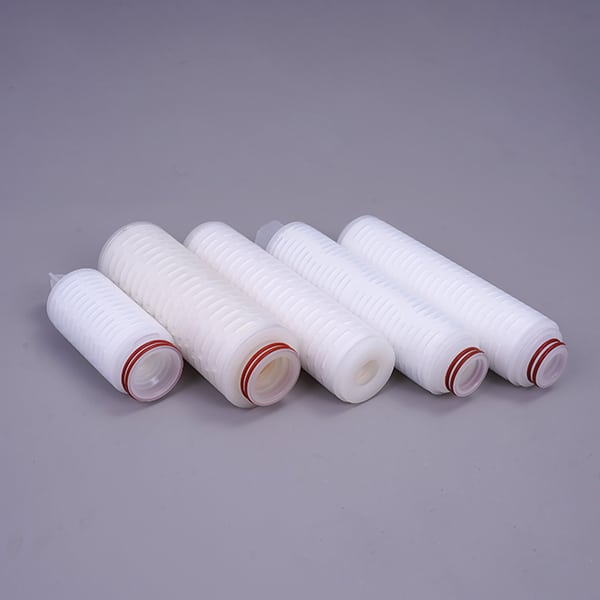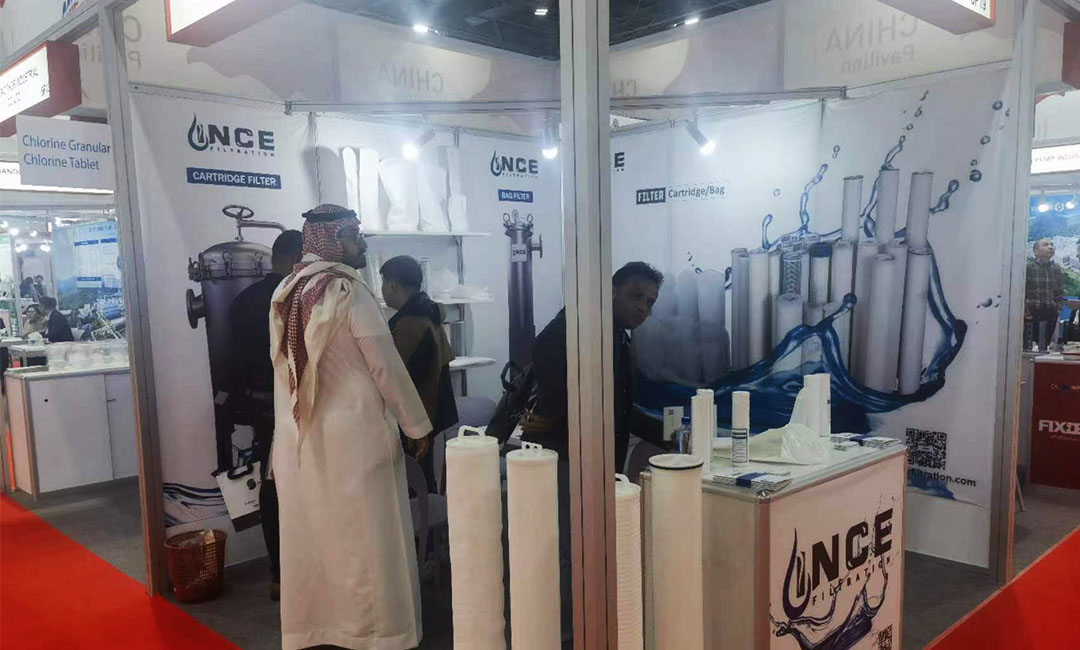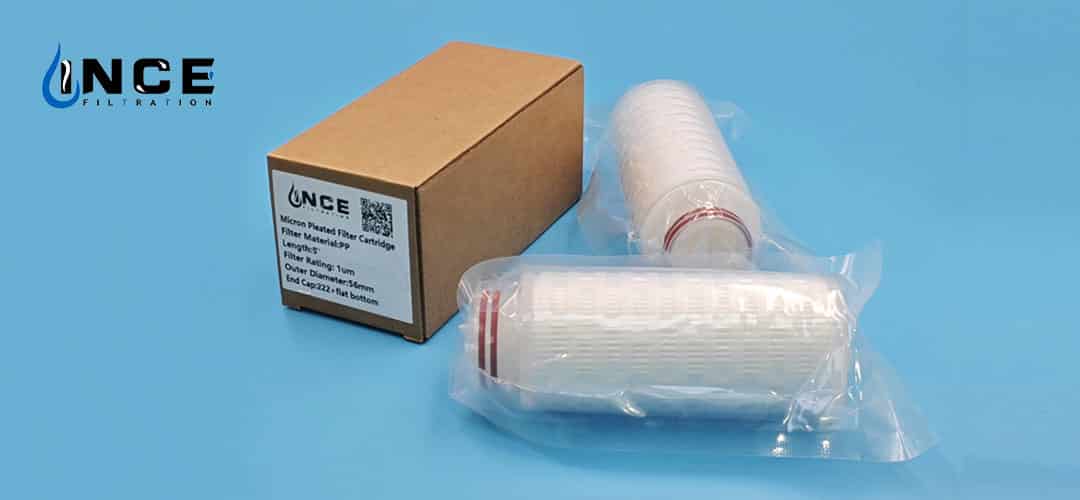
Environmental Benefits of Switching to Reusable Pleated Filters
Reduced Waste Generation
The environmental benefits of switching to reusable pleated filters are significant, particularly in the context of reduced waste generation. In an era where sustainability is paramount, the transition from disposable filters to reusable alternatives represents a crucial step toward minimizing our ecological footprint. Disposable filters, often made from non-biodegradable materials, contribute substantially to landfill waste. Each year, millions of these filters are discarded, leading to a cumulative effect that exacerbates the global waste crisis. By opting for reusable pleated filters, individuals and businesses can significantly decrease the volume of waste produced, thereby alleviating pressure on landfills and reducing the overall environmental impact.
Moreover, the production of disposable filters involves resource-intensive processes that consume energy and raw materials. The manufacturing of these filters typically requires the extraction of petroleum-based products, which not only depletes natural resources but also contributes to greenhouse gas emissions. In contrast, reusable pleated filters are designed for longevity and can be cleaned and maintained over time, thus reducing the need for frequent replacements. This shift not only conserves resources but also diminishes the carbon footprint associated with the production and transportation of disposable filters.
In addition to the reduction in waste and resource consumption, the use of reusable pleated filters promotes a culture of sustainability. When individuals and organizations adopt practices that prioritize reusability, they set a precedent for environmental responsibility. This shift in mindset can inspire others to consider their consumption habits and the impact of their choices on the environment. As more people become aware of the benefits of reusable products, a collective movement toward sustainable practices can emerge, further amplifying the positive effects on waste generation.
Furthermore, the economic implications of switching to reusable pleated filters cannot be overlooked. While the initial investment may be higher than that of disposable filters, the long-term savings are substantial. Reusable filters can last for years with proper care, reducing the frequency of purchases and ultimately leading to lower costs over time. This economic incentive aligns with environmental goals, as it encourages consumers to make choices that benefit both their wallets and the planet. By reducing the demand for disposable filters, we can also influence manufacturers to reconsider their production practices, potentially leading to a decrease in the overall supply of single-use products.
Transitioning to reusable pleated filters also fosters innovation in product design and materials. As the demand for sustainable alternatives grows, manufacturers are increasingly motivated to develop more efficient and environmentally friendly filtration solutions. This drive for innovation can lead to advancements in filter technology that not only enhance performance but also further reduce environmental impact. The ripple effect of this transition can extend beyond individual choices, influencing entire industries to adopt more sustainable practices.
In conclusion, the environmental benefits of switching to reusable pleated filters are profound, particularly in terms of reduced waste generation. By minimizing landfill contributions, conserving resources, and promoting a culture of sustainability, this transition represents a meaningful step toward a more sustainable future. As individuals and organizations embrace reusable options, they not only contribute to waste reduction but also inspire broader changes in consumption patterns and manufacturing practices. Ultimately, the shift to reusable pleated filters is not merely a personal choice; it is a collective movement toward a healthier planet.
Lower Energy Consumption
The transition to reusable pleated filters presents a significant opportunity for reducing energy consumption, a critical factor in addressing environmental concerns. Traditional disposable filters, while effective in their immediate function, contribute to a cycle of waste and energy expenditure that is increasingly unsustainable. In contrast, reusable pleated filters are designed to be cleaned and maintained, allowing them to serve their purpose over an extended period. This longevity not only minimizes the frequency of replacements but also reduces the overall energy required for manufacturing, transporting, and disposing of disposable filters.

To understand the energy implications of switching to reusable pleated filters, it is essential to consider the entire lifecycle of a product. Disposable filters are produced in large quantities, necessitating significant energy input for raw material extraction, manufacturing processes, and distribution. Each filter that is discarded contributes to a growing landfill problem, where decomposing materials can release harmful substances into the environment. In contrast, reusable pleated filters require energy primarily during their initial production. Once in use, they can be cleaned and reused multiple times, drastically cutting down on the energy associated with producing new filters.
Moreover, the cleaning process for reusable filters is generally less energy-intensive than the manufacturing of new disposable filters. While it is true that washing and maintaining these filters does consume some energy, this is often outweighed by the energy savings achieved through reduced production demands. Additionally, many users opt for energy-efficient cleaning methods, such as using cold water or air drying, further minimizing their environmental footprint. This shift not only conserves energy but also encourages more sustainable practices among consumers.
Another important aspect to consider is the impact of reusable pleated filters on HVAC systems. These filters are designed to enhance airflow and improve the efficiency of heating and cooling systems. When HVAC systems operate more efficiently, they consume less energy, leading to lower utility bills and reduced greenhouse gas emissions. By maintaining optimal airflow, reusable filters can help systems run at peak performance, which is particularly beneficial in regions with extreme temperatures where energy consumption for heating and cooling can be substantial.
Furthermore, the adoption of reusable pleated filters aligns with broader sustainability goals. As individuals and businesses become more conscious of their environmental impact, the choice to invest in reusable products reflects a commitment to reducing waste and conserving resources. This shift not only contributes to lower energy consumption but also fosters a culture of sustainability that can inspire others to make similar choices. By prioritizing reusable options, consumers can play a pivotal role in driving demand for environmentally friendly products, ultimately influencing manufacturers to adopt more sustainable practices.
In conclusion, the environmental benefits of switching to reusable pleated filters extend far beyond mere waste reduction. By significantly lowering energy consumption throughout their lifecycle, these filters present a compelling case for sustainability. The combination of reduced manufacturing energy, improved HVAC efficiency, and the promotion of sustainable consumer behavior underscores the importance of this transition. As society continues to grapple with the challenges of climate change and resource depletion, embracing reusable pleated filters emerges as a practical and impactful solution that aligns with the urgent need for environmental stewardship.
Improved Indoor Air Quality
Indoor air quality is a crucial aspect of maintaining a healthy and comfortable living or working environment. Poor air quality can lead to a variety of health issues, including respiratory problems, allergies, and even more serious conditions such as asthma. One way to improve indoor air quality is by using reusable pleated filters in your HVAC system.
Pleated filters are designed to capture dust, pollen, pet dander, and other airborne particles that can circulate through your home or office. By trapping these contaminants, pleated filters help to prevent them from being recirculated into the air, ultimately improving the overall air quality in your space. This can lead to a reduction in allergy symptoms, respiratory issues, and other health problems associated with poor indoor air quality.
Switching to reusable pleated filters offers a number of environmental benefits as well. Unlike disposable filters, which need to be replaced every few months, reusable pleated filters can be washed and reused multiple times. This not only reduces the amount of waste generated by disposable filters but also helps to conserve resources by extending the lifespan of the filter.


In addition to reducing waste, reusable pleated filters can also help to lower energy consumption. When your HVAC system is running efficiently, it doesn’t have to work as hard to heat or cool your space, which can lead to lower energy bills. By using reusable pleated filters, you can help to improve the efficiency of your HVAC system and reduce your overall energy consumption.
Another environmental benefit of switching to reusable pleated filters is the reduction of harmful emissions. When your HVAC system is running efficiently, it produces fewer emissions, which can help to reduce your carbon footprint. By using reusable pleated filters, you are not only improving the air quality in your space but also helping to protect the environment by reducing the amount of pollutants released into the atmosphere.
Furthermore, reusable pleated filters are often made from more sustainable materials than disposable filters. Many reusable filters are made from recyclable materials, such as polyester or cotton, which can be recycled at the end of their lifespan. This helps to further reduce the environmental impact of using pleated filters in your HVAC system.
Overall, switching to reusable pleated filters can have a positive impact on both indoor air quality and the environment. By capturing airborne particles and contaminants, pleated filters help to improve the air quality in your space, leading to better health outcomes for you and your family or coworkers. Additionally, reusable pleated filters help to reduce waste, conserve resources, lower energy consumption, and minimize harmful emissions, making them a more sustainable choice for your HVAC system.
In conclusion, making the switch to reusable pleated filters is a simple yet effective way to improve indoor air quality and reduce your environmental impact. By choosing reusable filters over disposable ones, you can enjoy cleaner air, lower energy bills, and a healthier planet for future generations.

